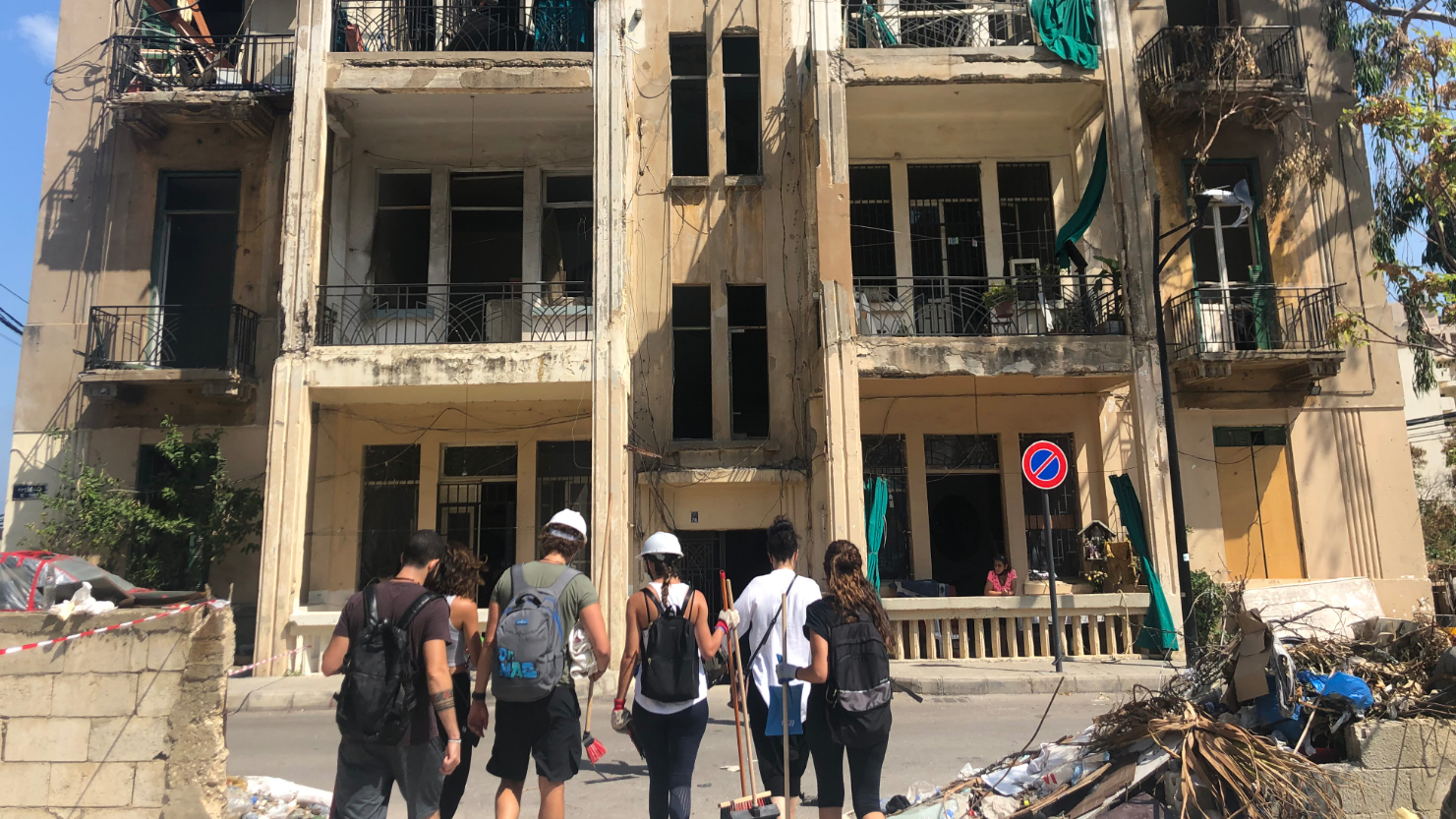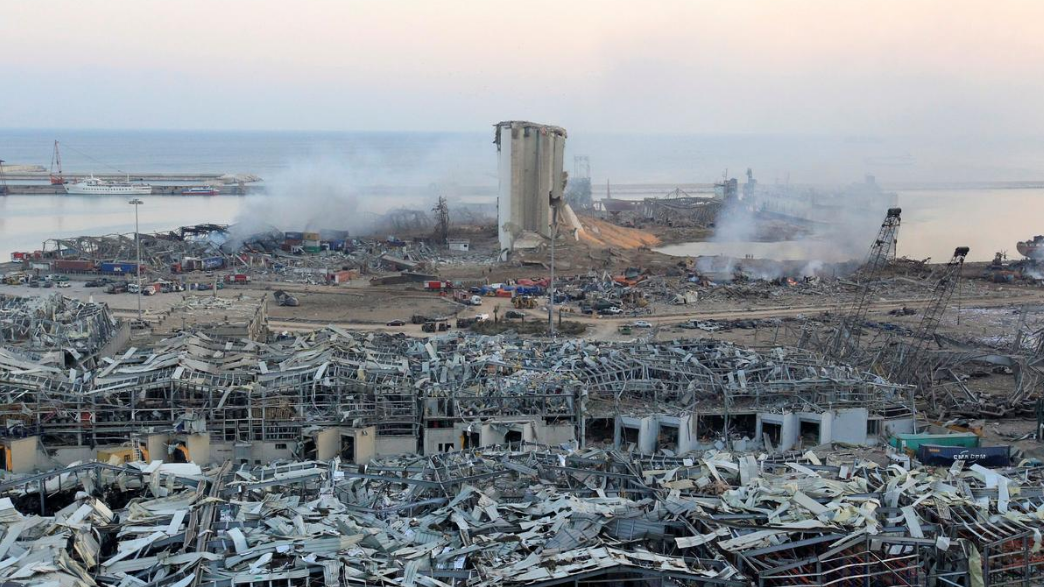Beirut, the Lebanese capital that just weeks ago was a small bustling metropolis of people, traffic and vivacity, has been reduced to a city of shattered glass, mountains of debris and streets lined with broken cars.
But rather than waiting for the government to act, a group of young citizens has decided to take action by volunteering to clean up homes damaged by the August 4 explosion at the Port of Beirut that left close to 200 dead, over 6,000 injured, and over a quarter of a million people homeless.
The movement was formed organically from a youth group already volunteering to find shelter and food for those affected.

Lebanese young citizens help clean up homes damaged by the August 4 explosion at the Port of Beirut. /CGTN
Lebanese young citizens help clean up homes damaged by the August 4 explosion at the Port of Beirut. /CGTN
Christelle Drouby, a 26-year-old freelance communication consultant and the Beirut Clean Up organizer, explains how she utilized social media to gather donations of brooms, helmets, gloves, shovels and bags by reaching out to anyone willing to assist. Though happy to be lending a helping hand to those in need, she explains the frustration that comes with the situation.
"We have no other option than to be on the ground and to be working with our bare hands to compensate for the absence of our corrupted government. It has failed us over and over and over again until all this failure exploded in our face literally, and they are still absent and missing in action."
Beirut was already suffering from a collapsed economy and the global pandemic with much of its youth giving up and deciding to leave the country, but some like Nazir Bissat, a young dentist participating in the clean-up mission, say they are hopeful.
"The second day after the blast, when I saw all the young people going to the streets and helping each other – kids distributing water, adults removing stones, girls washing dishes – I found hope in Lebanon again and decided to stay."
His sentiment is echoed by Paul Atallah, a psychology student, who says that the Lebanese rise by lifting each other and there is always hope in fighting for Beirut.
With brooms in hand, these two friends finished clearing the debris in the house chosen for clean-up that day. They neatly rearranged the bed as they looked out the window at the site of the Beirut port.

A view of damage at the site of blast in Beirut's port area, Lebanon, August 5, 2020. /Reuters
A view of damage at the site of blast in Beirut's port area, Lebanon, August 5, 2020. /Reuters
Beirut, throughout its history, has been synonymous with chaos. Sixteen years of civil war followed by years of political assassinations has always meant instability. Yet there has always been a fighting spirit within its youth, perhaps fomented by this constant turmoil. Drouby is cleaning up the last room in the house, with the sun piercing from the broken rooftop.
"As long as we, the youth, are taking charge of things, we are going to rebuild the Lebanon we dream of, we are going to rebuild the country we've always wanted. We are the present and we are going to be the future."